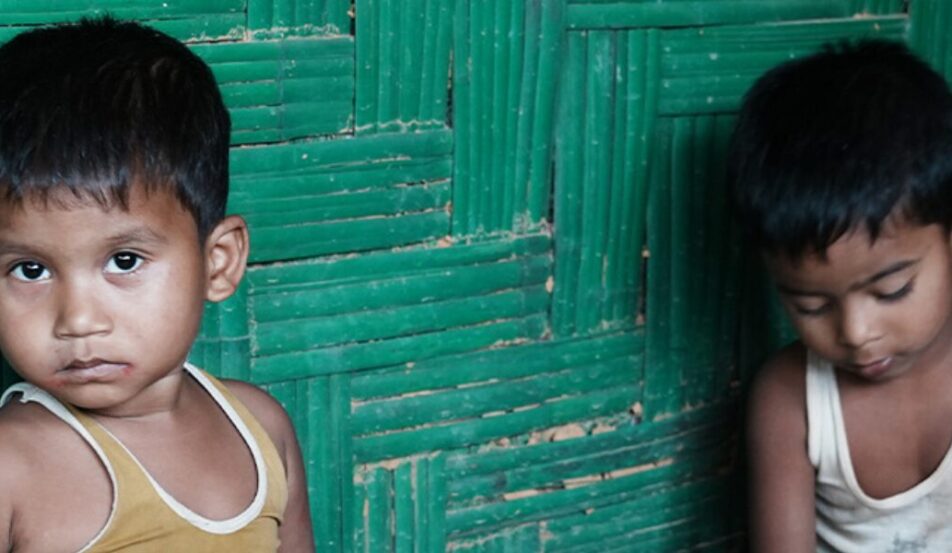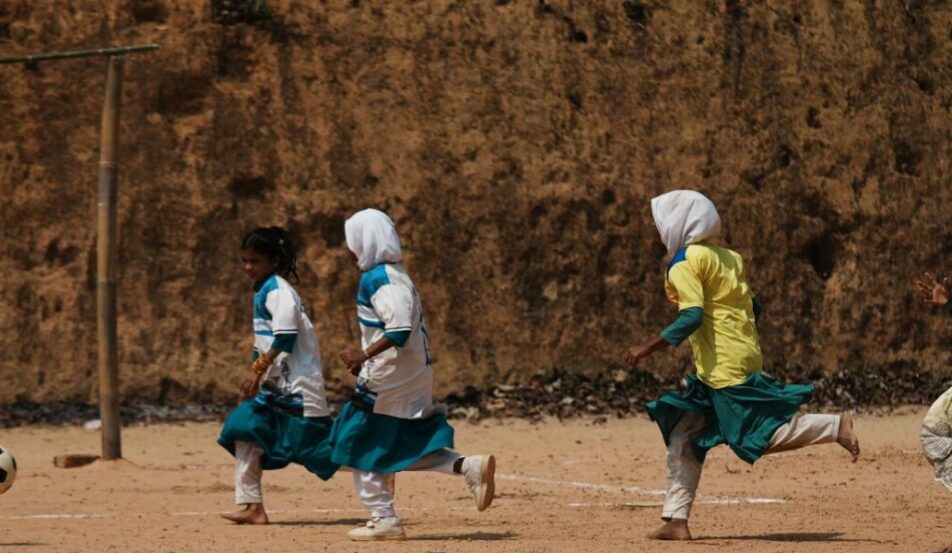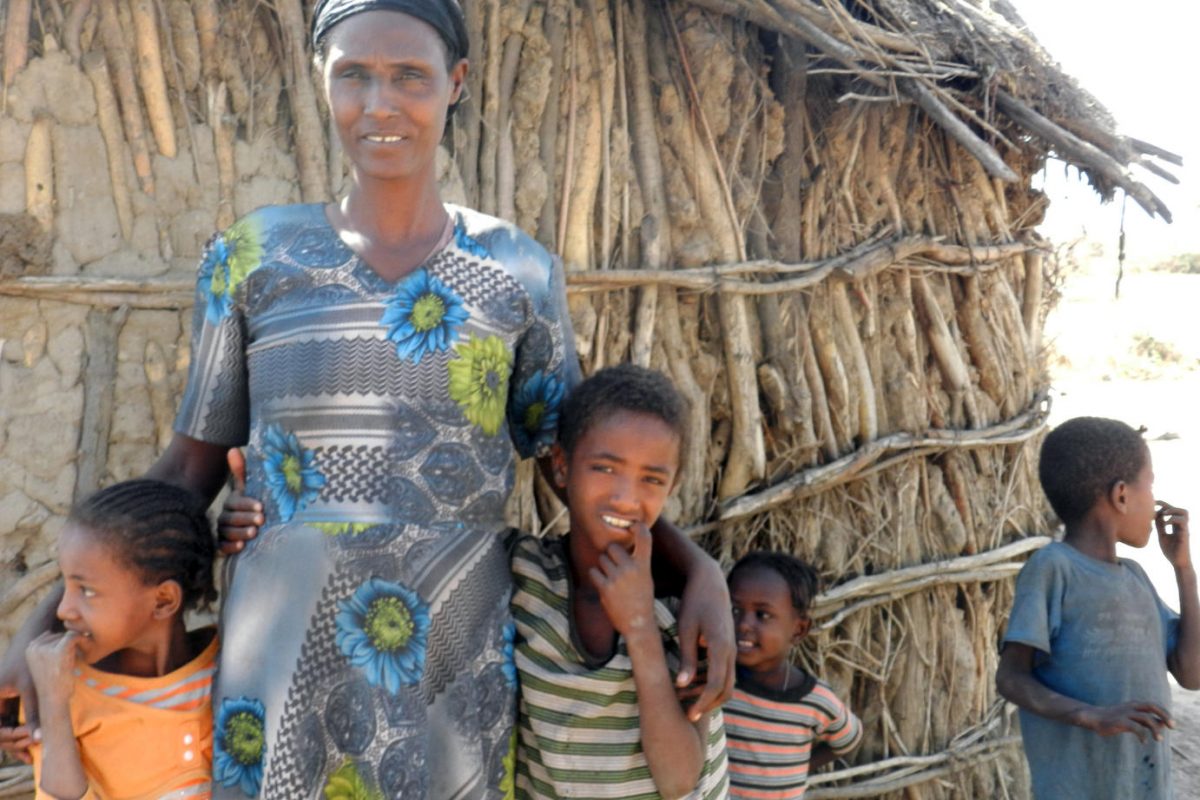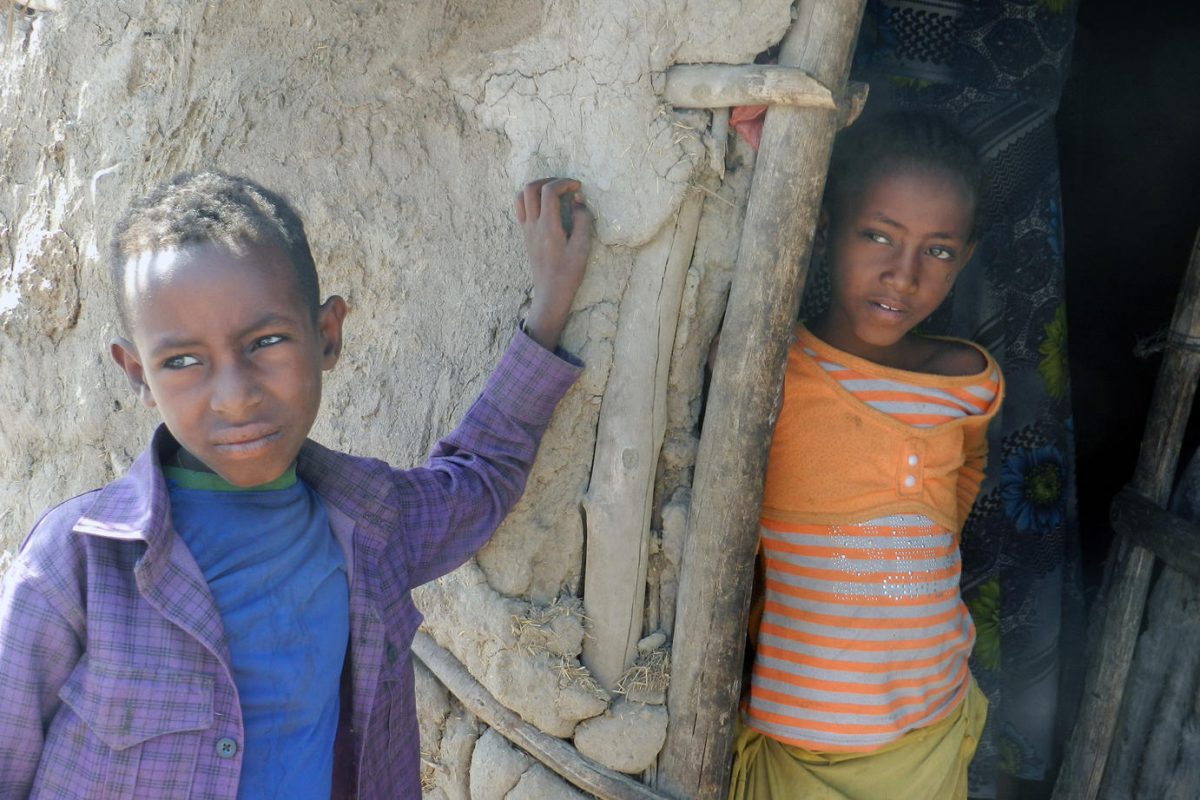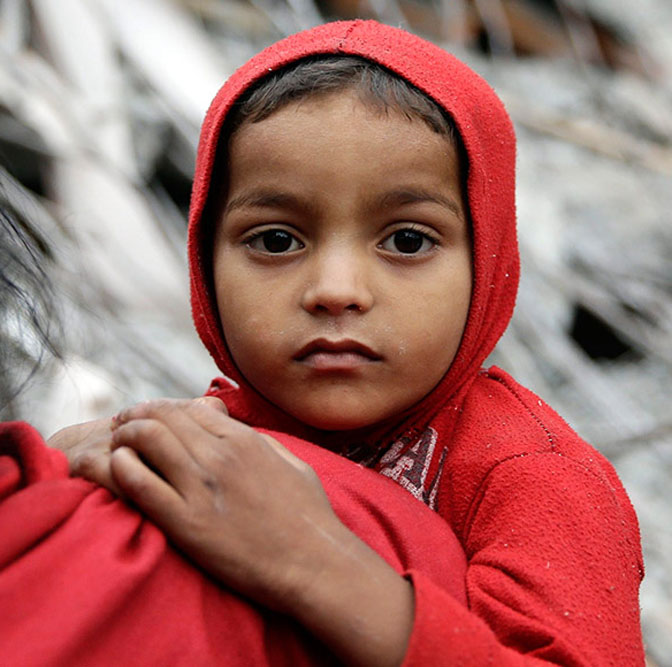“How can we cope without rain?” she asked. “We are farmers and depend on agriculture, but life seems to have turned its face against us these years.”
I didn’t know what to say.
“Now I don’t even know what we are,” she said. “I can’t call us farmers anymore because we are not farming. Our days are spent walking in search of water. The river is drying, and if this river dries we won`t know what we can do, as the next one is 30km away. There is no way we can walk 30km and come back here.”
Of her seven children, four attend school. Because she can no longer grow food for her children, she prepares their meals from government distributions of corn and supplementary food and edible oil provided by ChildFund Ethiopia.
“They eat less,” Sequare said. And what they do eat is not as nutritious as the varied diet of dairy, meat, vegetables and lentils they once enjoyed. One of her children tends toward sickliness and misses school at times. She worries this child`s health will worsen.
“I am tired,” Sequare said. “Every morning we wake up and look for the rain to come, but it is dry here.”
She said if the drought continued like this, they would migrate to the city in search of food.
“We can`t sit here and wait for our children to die.”
The drought and resulting food shortage in Ethiopia are expected to continue for up to a year. A strong El Niño weather phenomenon caused greatly diminished rainfall in the brief rainy season of spring, known as belg. Farmers in the Oromia region, where Sequare’s home is located, depend on the belg rains for their crops and livestock fodder. But the drought’s effects are more widespread than this region. The government of Ethiopia recently estimated the number of people needing food assistance to be more than 10 million people.
ChildFund, which has worked in Ethiopia for more than 40 years and is deeply committed to continuing progress for children’s wellbeing and development, is responding with emergency relief in the form of supplementary food; sacks of Famix, a high-protein, ready-to-eat mix of whole roasted corn and soy flour, and edible oil. In recent years, the Ethiopian government has worked hard to build the nation’s economy and infrastructure. We must provide help now, so that Ethiopia can continue this progress in the future.
On our way back from visiting with families, we saw ChildFund staff distributing supplementary food to the children. The parents seemed happy to receive it. Yet when I’d left the homes of those I’d visited earlier in the day, their faces had been sad. They hadn’t been able to share their harvest with me as they had in times past.
May the help we provide today help our friends to weather this crisis and enjoy many fruitful harvests in the years ahead.



